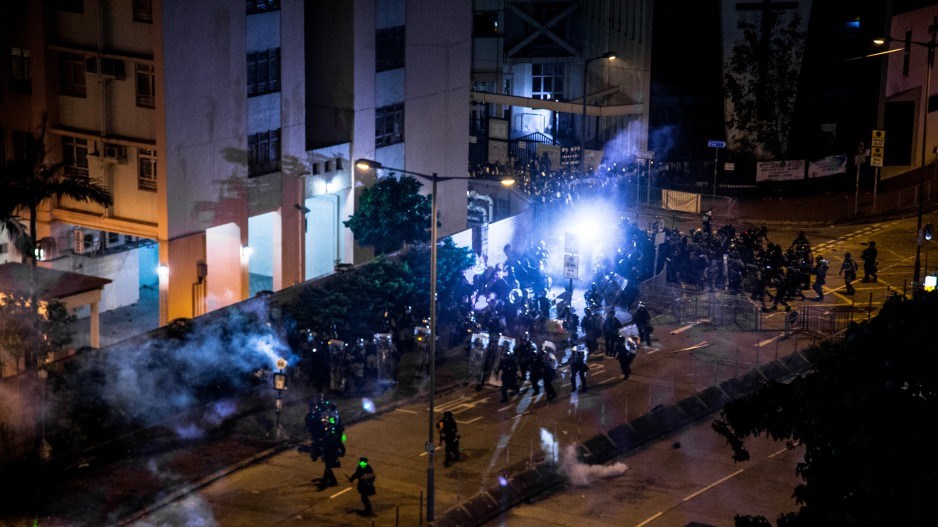Ottawa spoke out Friday against China’s plans to implement a controversial national security law in Hong Kong that would effectively end the “One Country, Two Systems” regime in the former British colony.
During his Friday news conference, Canadian Prime Minister Justin Trudeau confirmed the federal government is monitoring the situation closely and reaffirmed its support for “One Country, Two Systems” – a set-up that was originally guaranteed by agreement from Beijing and London during the handover of Hong Kong in 1997 to last 50 years.
However, Trudeau did not respond to whether Ottawa will issue a diplomatic rebuke to China at this time.
“We have long called for a de-escalation of tensions and genuine dialogue between Hong Kong citizens and Beijing, and we continue to call for that and keep monitoring the situation closely,” he said.
“We are concerned with the situation in Hong Kong. We have 300,000 Canadians living in Hong Kong, and that’s one of the reasons why we want to ensure the ‘One Country, Two Systems’ approach continues for Hong Kong.”
Violence in the streets of Hong Kong has been a regular occurrence in the city prior to the COVID-19 outbreak, with police cracking down on student protesters and recently arresting a group of high-profile democratic movement leaders – including retired Democratic Party chairman Martin Lee.
Beijing announced this week that a draft of the new national security law – which would ban “treason, secession, sedition and subversion” in Hong Kong – has been submitted to the yearly National People’s Congress (NPC).
One section of the proposed law would require Hong Kong to “improve” national security and allow “relevant national security organs of the Central People’s Government” to set up agencies in the city “to fulfill relevant duties to safeguard national security in accordance with the law.”
The law could then be added to Hong Kong’s Basic Law – the SAR’s mini-constitution drafted to guide the politics of Hong Kong after 1997 – without local legislators’ approval.
The NPC has historically acted largely as a rubber-stamp mechanism for the ruling Chinese Communist Party.
In a related line of questioning, Trudeau responded to reporters’ questions Friday of a Canadian Security Intelligence Service warning to Canada’s researchers about possible intellectual property theft during COVID-19 periods. The U.S. Federal Bureau of Investigation (FBI) has issued a similar warning, pointing to China as the top threat to obtain these intellectual properties.
Ottawa recently committed $1.2 billion in joint COVID research with China, but Trudeau said security mechanism and agencies are in place for defending Canadian institutions and information in cyberspace – and Ottawa has stepped up funding to those mechanisms.
“We will continue to make sure they have the tools to keep Canadians and our institutions safe,” he said. “Part of that involves notifying, but part of that involves working behind the scenes to keep Canadians’ information and data protected. We will continue to make sure they have the tools to do their work.”
But Trudeau is also adamant that the current international tensions surrounding COVID-19 should not drive discrimination and hate crimes against Canadians of Asian descent, denouncing the recent spike in incidents where racism appear to be a factor.
“Over the past few months, businesses, buildings and statutes have been vandalized,” Trudeau said. “People have been verbally abused and physically attacked. It’s unacceptable. Hate, violence and discrimination have no place in Canada; this is not who we are as Canadians.”




